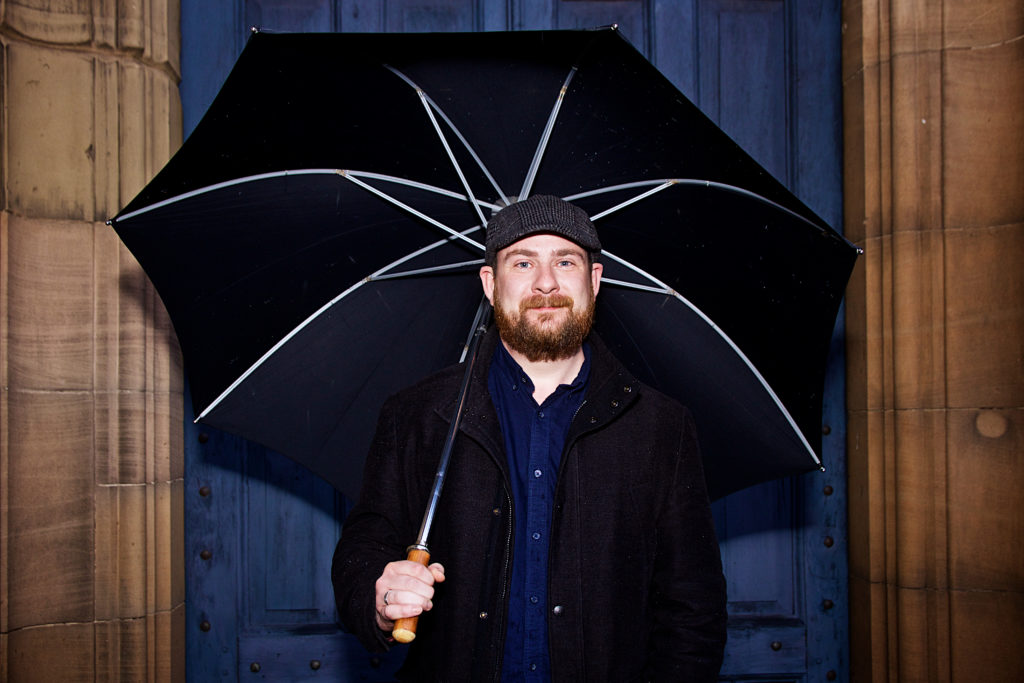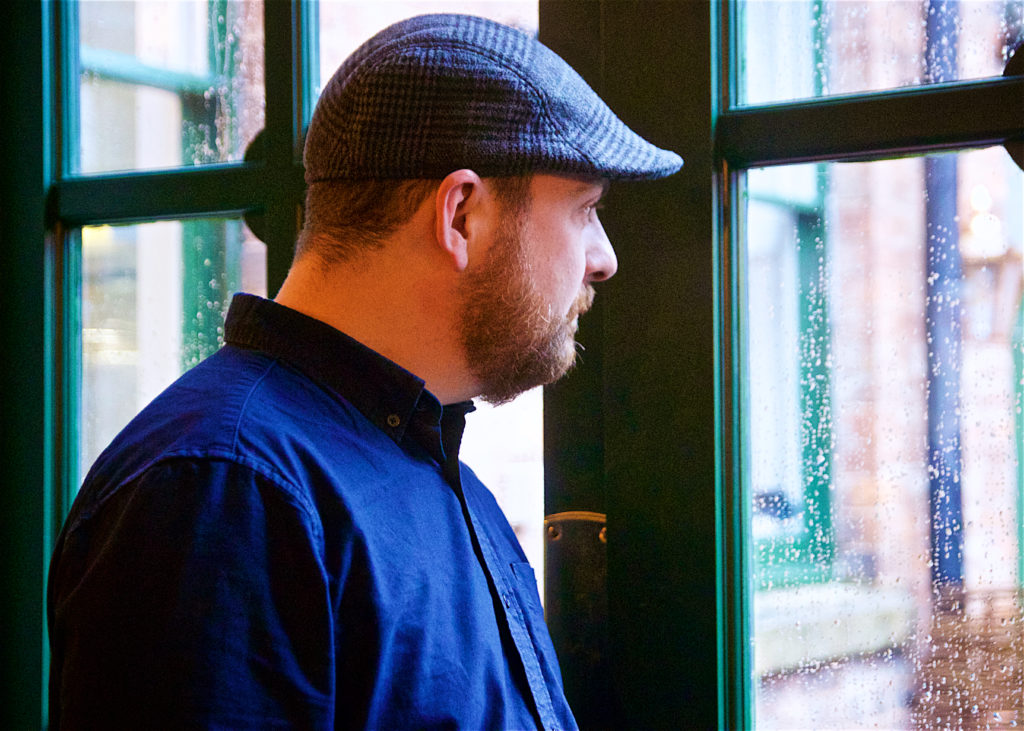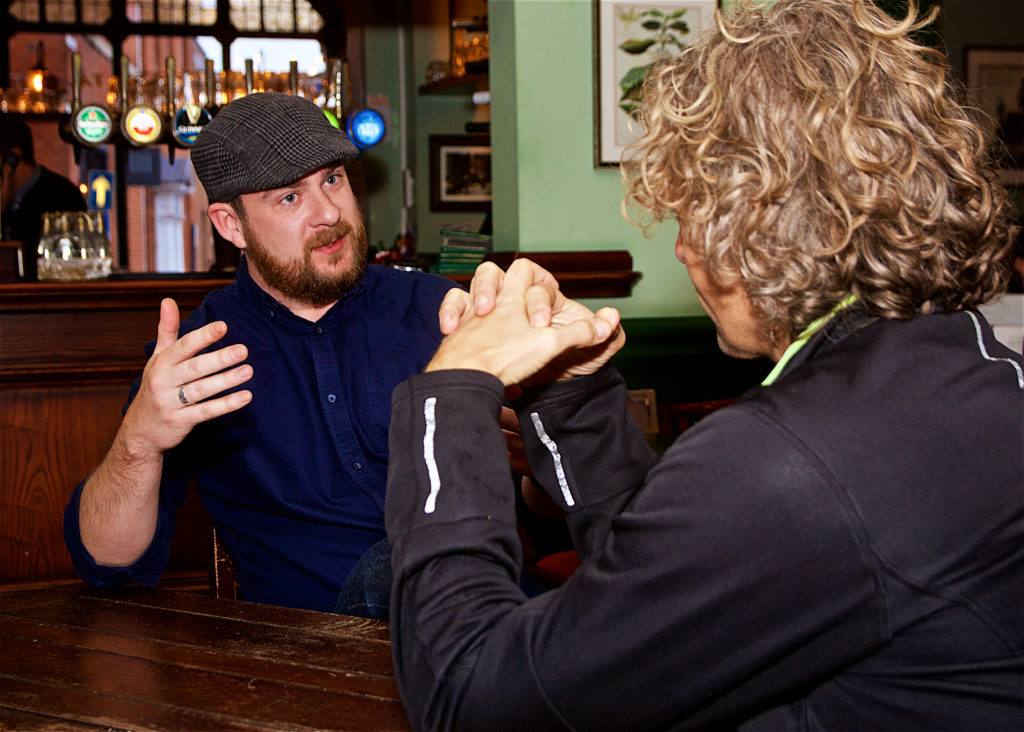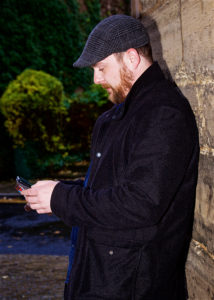A LIFETIME of battling with mental illness and addiction is the inspiration behind a Warwick man’s pioneering new coaching business.
Believed to be the first of its kind in the area, Short Steps aims to recognise and act on the early signs of depression in men before it takes hold.
Chris Cortopassi has been forced to face up to his own demons including drink, drugs and sex addiction which almost led him to suicide. And now, combining that experience with professional coaching and problem solving skills, has dedicated his life to helping others.

A reluctant student, Glaswegian Chris struggled to motivate himself through university before moving to Warwick to work as an engineer at National Grid. And looking back he now recognises the first signs of his slide into depression.
“When I was at university I was kind of conscious of the weird paradigm I was living because I would make a joke about it all the time. I hated the degree and didn’t study most of the time,” he said.
“By the end of the second year I was very stressed and anxious about the future and went to the doctors at that point. But I decided to drag myself through.
“National Grid then just seemed to tick all the boxes of ‘success’ and money etc. and I had been so preoccupied with that path and that definition of success. But I was a creative person and this was a very technical environment and I often didn’t enjoy the work. I wasn’t happy there at all. I was getting more and withdrawn over the years.”
He added: “Looking back now I realise I was starting to feel those things that I now look for in my clients – frustrated, withdrawn and very angry about a lot of unimportant things.”
Chris’ spiral also impacted on a relationship and triggered a self-destructive path of behaviour including excessive alcohol and drug use.
He said: “For a huge amount of time I was kidding myself that I was coping with the day to day, but lent heavily on my ‘crutches’ – drank a lot and smoked a lot of marjhuana – ridiculous amounts.
“The antidepressants helped a bit but it was a huge amount of intoxication and I’d regularly end up making myself physically sick. When I broke up with my partner I slid pretty badly because I suppose there wasn’t anyone there to hide it from any more.”

But it was an early obsession with pornography that, Chris now recognises, played a huge part in his increasing mental health struggle.
“When I was a kid one day I clicked onto something I shouldn’t have and that started a lifetime of obsession about sex and pornography. I was staying up to the early hours and would struggle to get out of bed for school. My parents never knew until I had a breakdown when I was an adult and it all came out. It went on for years and years and became a big part of my life.
“I would just disappear into a black hole where I would sit and anaesthetise myself with my mental ‘crutches.’ It would typically be a bottle of wine, several beers, lots of weed and I would lose four or five hours easily.
It’s when he reached his lowest point – an hour standing on a bridge contemplating jumping that Chris realised something had to change.
His doctor referred him to IAPT (Improving Access to Psychological Therapies) only for Chris to be added onto a four-month waiting list.
“I was really lucky because National Grid have a helpline. They assessed me straight away and I was enrolled on counselling sessions.”

These, plus thousands of pounds of private therapy, combined with psychotherapy, cognitive behavioural therapy and an increased focus on his personal development and learning, to give Chris the strength to begin fighting his demons and, in 2013, he started a new role at National Grid that was to lay the foundations for his new business.
“The new role as a practitioner meant coaching people and delivering training. The topics were really interesting to me inspiring people to change their attitudes and way they work. I was really excelling at it and enjoying it.
“You learn so much going through it, the processes and the way they support all the different theories and how childhood issues manifest and grow and now I really do have a breadth of knowledge.”
“A huge amount of the therapy is education but a lot of it was also just about forgiving myself.
“Here was the boy who avoided studying in university and I was, now studying like I had never studied before. It was very cathartic as well because the more you understand something the easier it is to process it and move on from it.”
Chris gained his formal coaching certificate and, with new horizons in his sights, invested his savings from his years at National Grid to set up Short Steps – the Italian translation for his surname Cortopassi.
He uses online videos, one to one sessions and workshops to coach men in a five-step process around problem solving and goal setting and says it’s this preventative approach that sets his business apart from the rest.
“There are two key things that are happening at the moment. One is a lot of awareness raising and the other is reactive services and responses. Whereas what Short Steps is about is preventative action, catching people and redirecting them before things get really bad.
“To fall into the traps I did is incredibly simple but actually to catch people and redirect them before they end up in a really bad place is also really simple.
“I made a conscious decision that I didn’t want to be a counsellor or a therapist or anything like that because that’s about looking back. I’m not really interested in that. I’m more interested in prevention.
“What I want to do is prevent people from getting ill in the first place. This is very much a revolution. I feel genuinely passionate about it. It is new, unique and forward-looking and doesn’t already exist out there.”

Men are particularly reluctant to seek help according to Chris, who claims mental health facilities are more easily accessible to women.
He said: “Men are built from day one to be desk pounding, to be in charge, to take authority, take the lead, to be strong. The whole thing crept in over our evolution, phrases like ‘Man Up.’ That did become part of the male language because we were in trenches firing bullets at each other’s faces. There was no space for anything other than the ‘man up’ and get on with it attitude.
“But I try and change the meaning behind that language to say ‘Man up and own your emotions’ and ‘man up’ and take responsibility for the fact that you are causing not just yourself pain, but causing your loved ones pain as well. It’s very much about taking control of the situation. Showing them that actually expressing their emotions, feeling their emotions and working with them is the braver course of action because anything else is just sticking your head in the sand.”
As for the future, Chris hopes to grow Short Steps so it can be rolled out across a wider area.
Chris said: “I spent my whole life going after what I thought I wanted and what I thought was the right thing to do and when I got to the reality of it I didn’t like any of it. But I’m now a totally different person. I’m now living me. I don’t feel uncomfortable with the way I live my life.
“To have been through what I’ve been through and still be strong and now be out there helping other people shows huge mental strength. It has been the combination of years of effort, thousands of pounds and medication and all the rest of it and now it’s been broken down to something that is really accessible and I’m hugely proud of it.
But he admits his business also acts as the final healing chapter of his own journey of recovery.
“I’m an expert in what it’s like to be in the pit of despair and come out the other end. I know what it looks like and how painful it is and that’s my motivation for helping other people. You don’t want mental health and guidance from someone who has never struggled with their mental health. You want it from an expert, somebody who has been through it and gotten stronger as a result of it.
“For me to be delivering this to other people almost makes what I’ve been through worthwhile.”
Visit: www.shortsteps.co.uk

